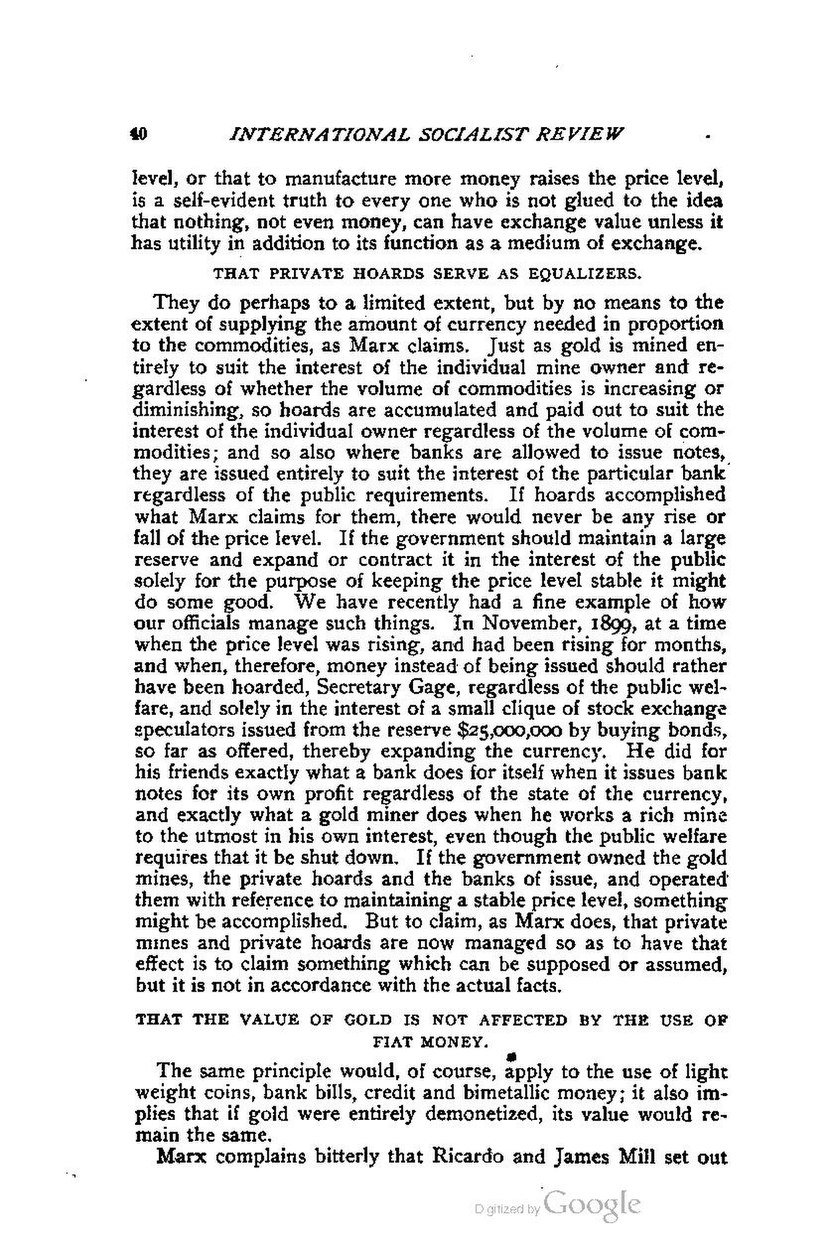level, or that to manufacture more money raises the price level, is a self-evident truth to every one who is not glued to the idea that nothing, not even money, can have exchange value unless it has utility in addition to its function as a medium of exchange.
THAT PRIVATE HOARDS SERVE AS EQUALIZERS.
They do perhaps to a limited extent, but by no means to the extent of supplying the amount of currency needed in proportion to the commodities, as Marx claims. Just as gold is mined entirely to suit the interest of the individual mine owner and regardless of whether the volume of commodities is increasing or diminishing, so hoards are accumulated and paid out to suit the interest of the individual owner regardless of the volume of commodities; and so also where banks are allowed to issue notes, they are issued entirely to suit the interest of the particular bank regardless of the public requirements. If hoards accomplished what Marx claims for them, there would never be any rise or fall of the price level. If the government should maintain a large reserve and expand or contract it in the interest of the public solely for the purpose of keeping the price level stable it might do some good. We have recently had a fine example of how our officials manage such things. In November, 1899, at a time when the price level was rising, and had been rising for months, and when, therefore, money instead of being issued should rather have been hoarded, Secretary Gage, regardless of the public welfare, and solely in the interest of a small clique of stock exchange speculators issued from the reserve $25,000,000 by buying bonds, so far as offered, thereby expanding the currency. He did for his friends exactly what a bank does for itself when it issues bank notes for its own profit regardless of the state of the currency, and exactly what a gold miner does when he works a rich mine to the utmost in his own interest, even though the public welfare requires that it be shut down. If the government owned the gold mines, the private hoards and the banks of issue, and operated them with reference to maintaining a stable price level, something might be accomplished. But to claim, as Marx does, that private mines and private hoards are now managed so as to have that effect is to claim something which can be supposed or assumed, but it is not in accordance with the actual facts.
THAT THE VALUE OF GOLD IS NOT AFFECTED BY THE USE OF FIAT MONEY.
The same principle would, of course, apply to the use of light weight coins, bank bills, credit and bimetallic money; it also implies that if gold were entirely demonetized, its value would remain the same.
Marx complains bitterly that Ricardo and James Mill set out
